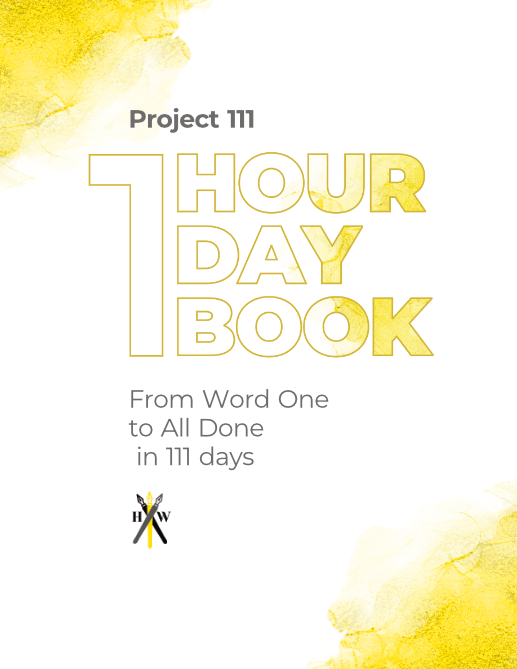Almost every piece of writing advice you’ll hear regarding storytelling will mention something about characters. Whether your novel is “plot-driven” or “character-driven”, your plot is driven by characters so in the end it’s character-driven.
So, because your novel is so reliant upon your characters, it’s important to write strong characters, especially your protagonists and antagonists. Obviously, the more strong characters you have, the more your reader will want to devour your story.
Now, when I say “strong character”, I don’t mean a powerful character who can lift a Volkswagen beetle with one hand. I mean a character so engaging that that they can carry the weight of your readers’ interest. With everything vying for your readers’ attention, it’ll take someone really strong to keep it.
The strongest characters are often the most human. You may think, “Well, hey. I’m not writing humans. I’m writing a space opera about robotic elves who are at war with dragon-goblin hybrids who have enslaved snail humanoids to build their planetary cheese factories. Why would I want any of my characters to be human?”
First off, kudos to you for writing such an ambitious story, I can’t wait to read it.
Second off, you want even your non-human characters to have human traits and personalities because all your readers (except maybe AI bots) will be human.
We read to see ourselves and the people around us. Stories give us the opportunity to validate our own worldview or to understand someone else’s perspective. Strong characters represent different personality traits found in humanity while showing off some humanistic ways of seeing the world (or worlds) around them.
Because of the effect a human-based character can have on the overall story, it’s important to write strong characters and master the process of creating them.
Table of Contents
Strengths and Flaws

One of the main things to include in your characters to make them engaging and have a strong personality is to give them consequential strengths and flaws. The important word here is consequential.
It’s really easy to get in the mindset of creating a strong character and have them be good at everything they touch. And when you write such a character you think, “Oh, but I’ll make them bad at chess or something.” A minor flaw or weakness like that doesn’t hold any sway over the story (unless it’s a chess thriller) and they remain an over-competent character.
By giving your character an important flaw, you set them up for a strong personality because they have something to fight or overcome. If your character can do everything, there’s very little fun in reading them.
The flaw needs to be consequential in that it presents a serious detriment to your character. They should have a goal and there should be external and internal forces that challenge that goal. The internal conflict should most often come from some flaw in the character.
All people are flawed and making flawed characters makes them innately stronger characters.
But there’s more to impressive, human characters than having the right flaw.
Giving your character a level of competence can make them engaging as well. A good character will be able to accomplish something. After all, most readers enjoy a story because the character arc involves the protagonist accomplishing what was previously a challenge to them.
In order to overcome and change, the protagonist will need to have some level of competency.
This doesn’t mean that you need to make a James Bond-esque character who excels at all the traits they need, but you should give them some positive traits.
If you want to make a mostly incompetent character, you can make sure that their strength is determination. A determined character can learn competencies and eventually overcome whatever obstacle they face.
Idiosyncrasies

Another way to achieve a strong character is to give them idiosyncrasies. The purpose of these quirks is to differentiate the person from other run of the mill characters.
You don’t have to make your characters like the “I’m so quirky” dating app profiles, but your character should have some oddities about them.
If when you hear “quirky character” your first thought is Wes Anderson, then you’re cool and you found the master of creating strong characters. That immaculately groomed man, Ol’ Wes, has tapped into a magic with idiosyncratic characters who are so full of life (even though that life doesn’t necessarily reflect the common person).
What does Wes Anderson do then to create such strong characters?
Beyond giving his characters some strengths and even more weaknesses/flaws, he can create a character that feels like the weirdest parts of all your friends wrapped into a single person, or animal for that matter.
Let’s look at the characters in Moonrise Kingdom. Sam and Suzie are some of the strangest characters I’ve ever seen in a movie. Sam is a socially inept orphan with a knack for wilderness survival. His interests involve painting, camping, and anything that could earn him a merit badge.
But the part of these characters that seems so strange is how they interact with other people. They understand each other in a way that other people cannot understand them. We see Sam unable to get along with the other khaki scouts because of his anger, and we see that Suzy has difficulty enjoying the company of others (with her own anger issues sprinkled in).
Their interests and social skills are definitely quirks, given that they stand out from the average person. When writing your own characters, you might not want to create such social anomalies as Wes Anderson does, but it should prove useful to think of characters in terms of how they differ from their cohort.

Our 84-page book planner and 111 day writing course.
Reaction to External Conflict

One of the best ways to make a strong character in your novel is to display their reactions to certain events. Clearly they should have their own motivations and actions (which you can learn more about in this article), but a good character with a strong personality will have interesting reactions.
How people face obstacles reveals their own traits and motivations. The same is true of the characters you write.
If we go back to Sam from Moonrise Kingdom, we see that he has plenty of external conflict. The main one is that quite a few people are looking for him with the hope of removing his freedom. His reaction to being hunted helps to strengthen his character.
Rather than cower in the face of opposition, Sam doubles down on his values and does everything he can to evade the group seeking him out. Beyond just strict evasion, he even goes on to marry Suzy to justify their love. Watching a character with strong reactions keeps the reader on their toes.
Going the other direction in external reactions can be difficult to keep the audience engaged, but it is possible. If we look at the unnamed character in Green Eggs and Ham. Rather than do anything as a reaction to the Sam-I-Am’s insistence, he does nothing. Sure, you could consider his ardent refusal of the eggs and ham an action, but he doesn’t run away or do anything beyond saying no.
Reading this character is still interesting though, given that he has another character prodding him to action. The Green Eggs and Ham character is still a strong character because of his reaction (and his idiosyncrasies).
If you decide to write a character whose reaction to conflict makes them turtle up in fear, you can still have a strong character. In fact, such a reaction could make them even stronger, like with the Dr. Seuss character. To strengthen the story, however, you will want to have another character or story element that can take them out of that fear and convince them to act. An entirely reactive character is almost always boring, but if they take an event and make something out of it, then you have an organic plot that’s driven by interesting characters.
Conclusion

While this isn’t an exhaustive guide into character creation, considering these three things while planning out your characters will definitely set you on a good track to making personality-full characters who will bless your story.
Some of the most important things to include in your characters are consequential strengths and weaknesses. These should induce your characters to action and will mold your story and character development throughout the tale. Remember, a strong character isn’t a character who can do everything. It’s a character whose strengths and flaws are balanced, making them feel real.
To spice up your character, you should think of some of the things that make them different. These can look like idiosyncrasies, quirks, social ineptitudes, or anything that sets them apart. They can also just have hyper focused interests that the general public might deem strange. Doing so intrigues the reader and taps into the part of the human brain that loves people watching.
The final thing to consider is how they will react to certain external pressures. Having a proactive reaction makes the character strong immediately. The audience will want to see what these characters do in the face of interesting scenarios.
A character who bunkers down and delves into their own fears can still make a strong character, but for the sake of the story, you’ll need to include something that can break them free of their own fetters.
Following these things should help you plan out some amazing characters who feel alive and real. For more guides on becoming a better writer, check out the other articles on our blog!
gavinwride
Gavin is a fantasy author, short story enthusiast, and nature lover. When he’s not reading, writing, or exploring the outdoors, he is likely playing games. His board game collection is probably too big for someone living in a small apartment, and he has enough yet-to-be-played video games to fill a lifetime. His favorite book is "The Name of the Wind". His favorite author is Edward Abbey. His favorite game is "Dark Souls III", and he’d be more than happy to spend the day talking about lore, bosses, and game mechanics.
Our 84-page book planner and 111 day writing course.
